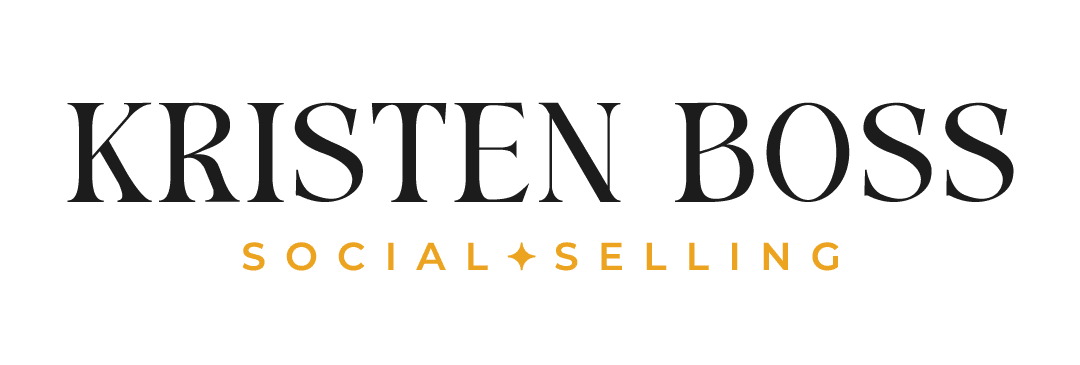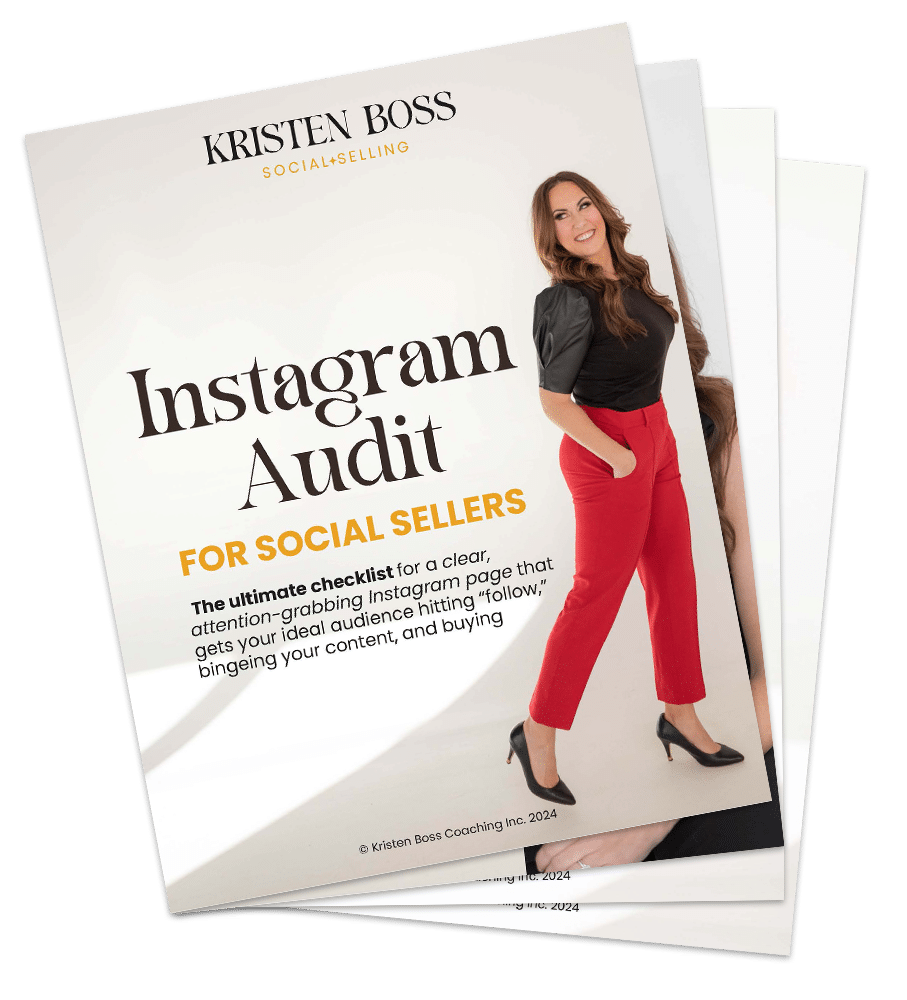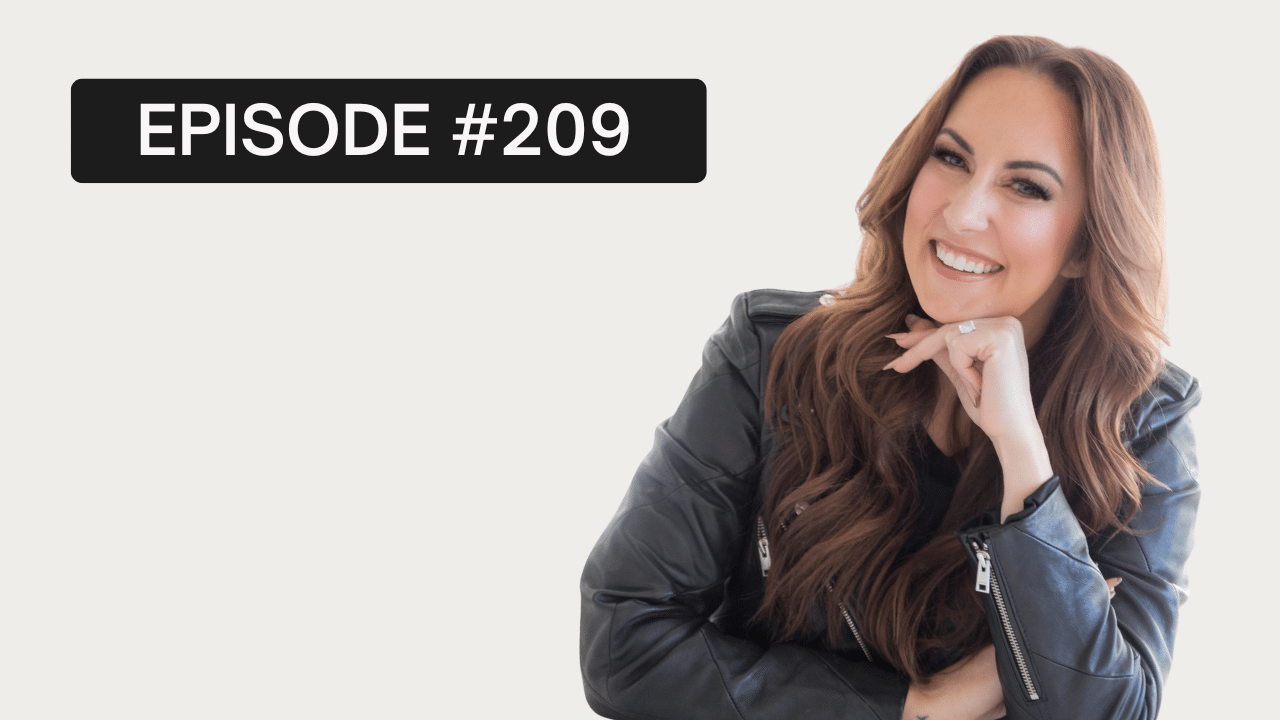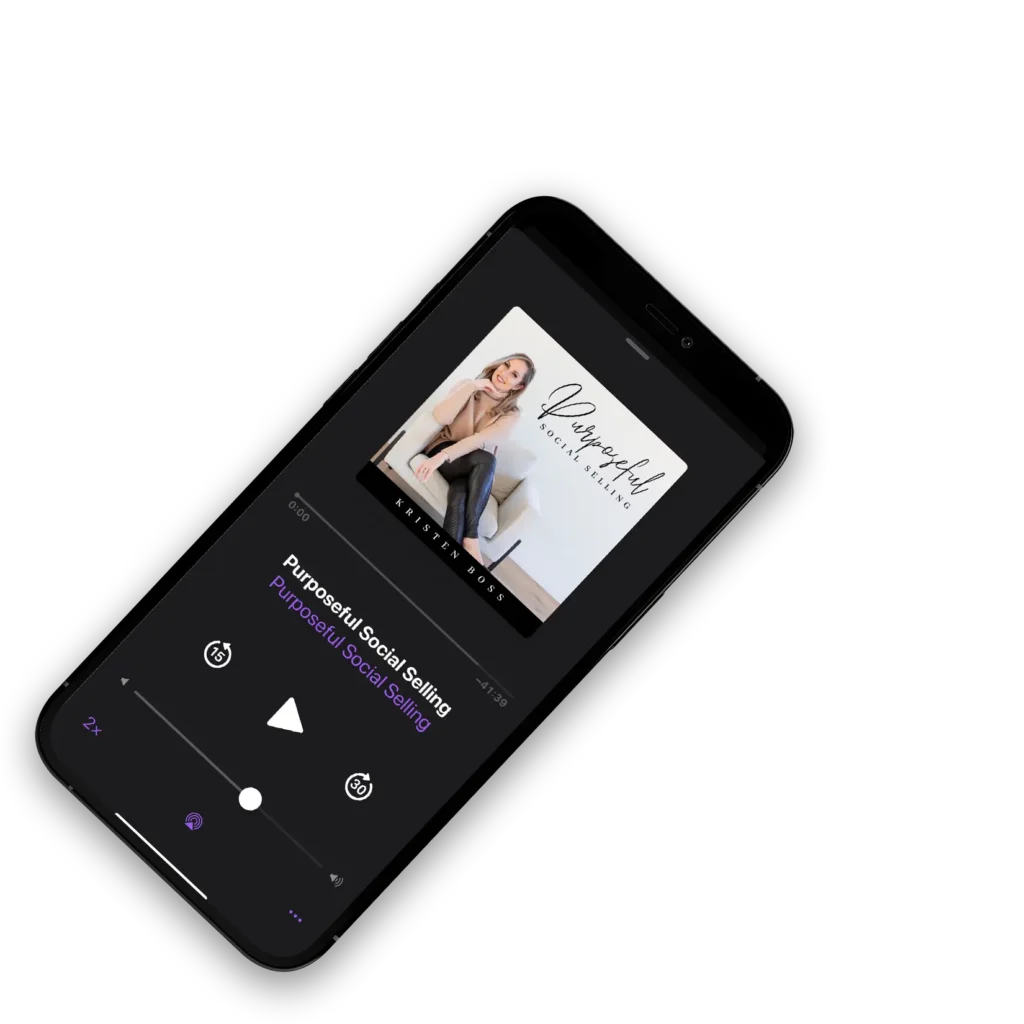One of the biggest pitfalls to achieving success in the social selling/network marketing industry is that people don’t think they have unique value to share as they market their business. It’s the biggest killer to creating consistent and valuable content.
Kristen’s sharing how you need to have self-validated value first as you’re growing your business and how fear and struggle are signs that you’re on the right track.
Today’s takeaways:
- How to determine what is valuable to your audience and how to create that value easily and consistently
- Why you never run out of content if you know your unique value for your specific audience
- What is ‘vanilla content’ and why it’s so common
- What happens to your content when you try to show up like someone else
- Creating content from your head and not your heart is not valuable
- Why the most successful direct sellers know they must expect struggle in their business
- How you will know that you are on the right track
- Seeing yourself as valuable first is the first step to creating valuable content
- Why you need to take a specific stance on something in order to attract the right people
Thanks for listening! Do you have a question about network marketing? Kristen can help! Drop your question here, and she just might answer it live on the podcast: https://kristenboss.com/question
Connect with Kristen:
Do you have a business full of customers and almost no builders? You’re in need of a reboot! Learn the three skills you can learn that will completely change your recruitment game. Check it out here.
If you’re ready to learn the simple process of running your social selling business online, you have to check out Kristen’s live group coaching program! The Social Selling Academy: www.thesocialsellingacademy.com
Interested in Kristen’s exclusive mastermind for six-figure earners in the network marketing industry? Get all the details and join the waitlist here.
Transcript for Episode 26: The Truth About Value:
Kristen Boss (00:05):
Welcome to Purposeful Social Selling with Kristen Boss. I’m your host, Kristen Boss. I’m a mindset and business coach with more than 15 years experience in both the product and service based industry. I believe that social selling is the best business model for people wanting to make an impact while they make serious income. This is the podcast for the social seller, who is tired of feeling and authentic in their business and desires to find a more purposeful and profitable way of growing their business in today’s social media landscape. In this podcast, you will learn what it takes to grow a sustainable business through impactful and social marketing. It’s time to ditch the hustle and lead from the heart. Let me show you the new way. Hey bosses. Welcome to episode 25. I am ready to give you guys some pretty awesome stuff today. So you are ready for it. Listen,
Kristen Boss (01:01):
I feel like I talk about these two emotions a lot inside my academy and with a lot of students. So we’re going to get straight to it today. And I want to talk about, I feel the number one emotion that people keep choosing or indulging in when it comes to their business. I think to be like choosing whoa, indulging, whoa. So, but yes, and it’s an emotion I choose to indulge in myself sometimes, but I’m going to help you understand why the emotion is not helpful and why it’s actually a default emotion for you. But before we get into that, I want to tell you a funny story that kind of encapsulates this topic in this episode. Well, I have been watching, I have toddlers, so of course they’re when they’re home on the weekends, they love to watch movies. And one that they’re into right now is the Crudes.
Kristen Boss (01:58):
And I was just cleaning the kitchen in the background and I’m listening to it and I just start cracking up hysterically. And if you haven’t watched it, I would actually encourage you to watch it. And here’s why, if you haven’t watched it, it’s, it’s set in like the caveman days is paleo paleolithic, caveman days in it it’s about the family, the Crudes, and somehow they have survived all the other families before them. They are the last family left. They’ve survived all the, you know, the monsters, the famine, like all the things that they could survive. And so the father of this family, the patriarch as he will he is his main goal in life is to protect the family. And the family has watched all these other families get taken out by, I think it was like one was like the flu, the common cold, another one was a fire accident or something.
Kristen Boss (02:58):
And so this father is just bent on protecting his family and they have their little family cave. And he has a very curious daughter who just wants to see the world. And it is hilarious to watch this because really, as I’m watching it, I was like, oh, this is a fantastic example of our primitive brain and how it operates. It is fascinating to watch from a psychology standpoint. And to understand if you want to understand how your brain works, watch the first 15, 20 minutes of the Crudes. And you’re going to be like, oh my goodness, this is shocking. But your brain, and I’ve talked about this in a cup and a few episodes that your brain still operates in its primitive state. Even though we have technology and we are not in the caveman days at all, your brain still operates primarily from its primitive kind of lizard brain where its main job is to keep you alive and keep you safe and survive.
Kristen Boss (04:05):
That’s it. So your brain still has that primal response and it’s its first response to anything that might, that the brain might perceive as dangerous or unpredictable or risky. So you still have that caveman in your brain. Okay? So this dad is just bent on protecting this family. And the things he says is hilarious, but there’s one thing where he’s like, okay, everybody, you know, gather around, you stay in the cave. You don’t go out there until I, until I allow you to leave because the father has essentially ingrained in his family. If you leave the cave, you will surely die. There’s nothing but death out there for you. The only place you will be safe is in the family cave. And this father is telling his daughter like a story to keep her safe and help her see like why the cave is so important.
Kristen Boss (05:00):
And he’s like, you want to know the worst, most dangerous thing in the world. He’s like, do you know what killed that family? Curiosity. And everyone was like, not curiosity, but the father was like, curiosity is the worst thing in the world. We need to be predictable and we need to be safe. And that’s in the case, that is your brain. Your brain is going to choose the cave. And we’ll always see curiosity as, as risky. And so as we unpack this episode, I want you to keep that in mind and just understanding that that’s just how your brain works. We may not be in the paleolithic days where when you feel fear, you go and find a rock to hide under our caves. Look a lot more different. Your brain has evolved in the sense that it’s a lot more sneaky in protecting you.
Kristen Boss (05:52):
It’s a lot harder to notice when your brain is operating in a primitive state and retreating to the cave. Looks like watching Netflix, working out instead, baking, cleaning your house, working out pretty much doing anything that’s comforting or predictable or routine your li your brain loves routine. And to take it out of routine, your brain is going to freak out. Okay? So the reason why people there aren’t a lot more people having massive success in business is because they haven’t learned to acknowledge the primitive brain and learn to operate and still do hard things. Even when they experience fear. I think a problem is, is a lot of people wait for fear to go away or the nerves or the anxiety to go away. So they’ll retreat and they’ll do things in hopes of preparing themselves or to feel better, or to feel more prepared.
Kristen Boss (07:06):
Instead of learning to operate with fear, operate with anxiety, operate with stress or sadness or any negative emotion. We’ve almost been taught to operate only in our positive emotions. And then if we are experiencing negative emotions, we need to retreat. But I actually want to tell you, I’ve learned to welcome the feeling of fear and uncertainty when it comes to growing my business. And that’s what I want to offer you. What would it look like for you to embrace fear and uncertainty and anxiety instead of seen as a problem or that you’re doing something wrong. And that’s what I see a lot of business owners do when they feel fear. When they fear anxiety, when they, when they feel uncertainty, thei assume something has gone wrong, or they’re about to do something wrong and they retreat, or you ready, they default to the emotion or the state of being, which is confusion.
Kristen Boss (08:13):
They default confusion is a default, your brain goes to when you feel fear. So instead of going and doing the thing, your brain is going to default to I’m confused. I don’t know what to do. I had a client. I told her, I was like, instead of a swear jar, you’d need an, I don’t know, jar. However many times you say, I don’t know in a day, but your brain loves to say, I don’t know. And indulge in confusion because confusion keeps you from taking action. And if your brain perceives that action, you know, you need to take as risky or scary or uncertain or unpredictable. Your brain’s going to do whatever it takes for you to not experience those things. Because there still is that caveman inside of you saying we cannot do anything unpredictable. And we certainly can’t have curiosity. That is dangerous.
Kristen Boss (09:07):
So when the brain defaults to confusion, that’s when you feel overwhelmed, that’s when you’re in an analysis paralysis, you’re questioning everything. And I want you to think of if you have a toddler or if you’ve ever babysat or just watch a kid, a small person when they are trying to work on a project or build something, have you ever seen them in their, I don’t know, state it’s, they’re very emotional. I’m going to tell you about my toddler. So if my, if my toddler is sitting down to write a project and he has decided, I don’t know, I don’t know what to do. I see him stay stuck in that state and he gets overwhelmed. I see him get frustrated. He gets emotional. He wants to quit because he keeps saying, I don’t know. I don’t know. I don’t know. I don’t know. And that’s what happens to us is when we, as long as we choose the thought and you don’t think you’re choosing the thought, but you are, as long as you continue to allow the thought, I don’t know.
Kristen Boss (10:10):
It’s going to keep you in overwhelm and keep you stuck. Confusion actually closes down. It shuts down your brain from looking for creative solutions. Confusion is a very closed posture. It shuts down. It’s no longer looking for answers. And when you are shut down, you’re not taking action in your business that creates forward movement or progression, right? Confusion just creates more problems in every movie you’ve ever watched. And when the characters confused, they often make poor choices or they get themselves in bigger trouble, right? Confusion is never the answer. And it’s really important that you can choose to not feel confused. And, and we’ll get there. Confusion comes from a place of indecision, right? Confusion happens when you don’t decide. And the reason why people don’t decide is because they don’t trust themselves with their decision. They don’t trust their ability to make decisions. They’re too afraid to make the wrong decision.
Kristen Boss (11:26):
Oh my goodness. I can go all day about this. I see a lot of people feel extremely paralyzed with what if I make the wrong decision, or I want to do it the right way. And let me tell you something in business right and wrong. That’s what you personally assigned to things, but there is no right or wrong in business. There is simply you making a decision and you’ve seen it through all the way to the end. And you evaluating was that the best decision, but a lot of people are so afraid to experience making a decision, seeing it through to the very end, putting in the effort and coming to the end and not getting the desired result. They’re afraid of the emotion and the feelings they’re going to experience when they put in effort and they don’t get the results, but the results could look like you getting answers for what to do differently. Next time, that is a result.
Kristen Boss (12:32):
You know, I, I tell my students a lot with my, with my copywriting book, I was like, I didn’t have anybody overlooking my copy and telling me, this is what works. This is what doesn’t work. I did so much trial and error. And I was just willing to put things out there. I would put it out there and I would evaluate it, tweak it, improve it, put it out there, evaluate right. That is the consistent cycle. But I think people are afraid to make a decision and put in effort and their effort not create the result they want. I think it’s really important. You know that your effort and your time are never, ever wasted, unless you decide for them to be wasted. You can decide right now that you are someone who doesn’t waste time or energy. And therefore you trust yourself with every decision you make, instead of you being afraid of wasting time and energy. I think that’s why a lot of people are afraid to make a decision because they’re afraid. What if I make the wrong decision? And I waste my time and I waste all this energy. And I put in all this effort and I don’t get the result. I want. You are not going to get where you want in business. If you are afraid to exert energy and not see the result you want right away, you’re not guaranteed an outcome.
Kristen Boss (14:04):
That’s why a lot of people quit in business. They had an expectation of how their decision was going to play out. It didn’t go the way they thought and therefore they think something’s wrong. I can’t do it. Maybe I’m not cut out for this instead of evaluating, tweaking it and attempting it again, that’s business. But your brain doesn’t want to experience that. So chooses confusion so that you don’t have to make a decision, right? Confusion is your brain’s default emotion. When you come up against something that is unpredictable and confusion truly comes from a place because you lack self trust. I have this saying in my academy with my students and clients, I say have your own back. And what that means is that you commit to a decision, you see it through and you trust yourself. You be your own biggest cheerleader. When you get across that finish line, you cheer for yourself.
Kristen Boss (15:12):
You pat yourself on the back, you dust off your boots and you say, yeah, me and I’m going to keep going forward. That’s what it means to have your own back, saying no matter what come hell or high water, I’m going to be proud of how I showed up in pursuit of this goal. But a lot of you don’t have your own back because you are so mean to yourself. When you don’t hit a goal, you have a really loud inner bully that beats you up. Every time you push for a goal and you don’t make it because when you don’t make it, that inner talk is awful. It’s probably should have done this differently. It’s because you don’t have that experience. You’re not a leader. Everyone knows you’re not a leader. You’re just a fraud. You got here on accident. It was just luck. People know that you’re not good at this.
Kristen Boss (15:59):
If only you tried a little bit more, can you imagine? But that truly is the inner voice that some of us have when we don’t meet our goal. So of course, if that’s the type of criticism that is awaiting for you, the inner criticism that is waiting for you at the end of the finish line, whether you hit the desired result or not, of course, you’re going to not want to set a goal because you know how you’re going to be treated. If you don’t miss, if you don’t hit that goal, right? What would it look like to love yourself? No matter what, to see yourself as a valid, capable, awesome human being and be so proud of who you showed up as in pursuit of your goal. Instead of I’m only proud if I hit my goal, being proud of who you were in pursuit of the goal. That is so important. If you hear anything today, please hear that.
Kristen Boss (16:59):
But the reason why you don’t want to make a decision and you don’t want to pursue the decision is because there is a bully on the other side of it, there’s either a bully or someone that’s really sweet and nice offering you champagne and roses. Think about that. No matter what the outcome, there’s two outcomes for you. When you hit a goal, you either get the bully or you would either get the, the doting parent. Like I’m so proud of you look at you. You’re so great. Good job. Here’s your, here’s your flowers. Here’s your champagne. Here’s a party. You’re so good. You’re so worthy. But if you miss the goal, it’s what is wrong with you?
Kristen Boss (17:38):
That is not having your own back. Having your own back is treating yourself the same, whether you hit the goal or not. And if you aren’t setting goals, and if you aren’t making decisions, it’s because you don’t have your own back. I say this in my academy a lot, because I have some people that joined the academy and they’ve made a lot of money in their business. And they have some that have joined the academy and they’ve made no business, no money in their business yet. And I always tell them, have your own back here, meaning trust your decision to invest here and show up with that trust that you’re going to get everything you came for, that you are capable of getting your results. That you’re not going to give up on yourself. That’s why, by the way, that’s why I made it a one-time lifetime payment and not a membership monthly, because I wanted people to only make the decision once for themselves, once for their future, once for their growth and be able to stay in there and get what they need. And if they had a rough couple of months, if that inner critic started to get the best of them, they’d be able to dust off their boots and come right back. Having your own back is trusting your decisions no matter how they flush out.
Kristen Boss (18:53):
And when you are somebody who constantly chooses a thought, I don’t know. And you’re confused. It’s because you don’t trust yourself and you don’t have your own back. So instead of confusion, what should you choose? And set curiosity. The one that the father and the cruise was like, don’t do curiosity. Curiosity is the most dangerous thing in the world. I’m actually going to tell you, curiosity is the absolute best emotion and discipline you can have in your business. Build your curiosity. Muscle confusion says, I don’t know. And it shuts down the creative solution thinking and the problem-solving curiosity asks the question. What do I know what’s working for me? I wonder what could have been done differently. I wonder why it fleshed out like that.
Kristen Boss (19:45):
I’ll be real honest with you. You know, during, during black Friday weekend, you know, I was looking at my email metrics and how many emails were opened up. And it was a lot lower than normal. And had I chosen confusion or criticism, I would have been beating myself up, but instead I immediately moved into curiosity being like, Hmm, I wonder why the open rate is low. I wonder what’s going on with my audience. I wonder what I might need to say or do differently. I wonder what they need. I wonder what’s going on in their inbox. And from that, I was able to adjust mid weekend and kind of tweak some things from a place of curiosity. Curious is very open. It’s the posture of open openness. It opens us up to possibility. It opens us up to solutions to strategy, to problem-solving confusion, shuts that down.
Kristen Boss (20:44):
But curiosity is all about the possibility. That’s all about looking and curious is it’s. I almost feel like it’s a positive emotion. It’s a lot more neutral. I don’t think you can be curious and freaking out at the same time. When you move into curiosity, it automatically calms you down and puts you into problem solving. And also when we’re in that state of curiosity, we’re able to detach our identity, attach, detach our self-worth from the outcome of the problem we’re trying to solve. We’re not making it mean something about us when things aren’t going our way, we’re being curious because we’re detaching ourselves. We’re truly, we’re zooming way out. We’re getting the 30,000 foot view. We’re being really objective. And we’re more objective. We’re able to think really clearly. That’s why coaching is so powerful because when someone’s coaching you, they’re not in your head and your emotions, and they’re not clouded by feelings.
Kristen Boss (21:55):
Our feelings can cloud a lot of our judgment and our decisions. Whereas coaching that me as a coach, when I’m coaching my students, I am not emotionally tied in their decisions. And therefore I can think very clearly and point them to what they need because I’m objective. So when you’re curious, that is where self coaching happens. That is where you’re able to see what’s going on. But when you’re curious, it automatically puts the, when you’re sorry, when you’re confused, it automatically shuts that down and you can’t see what’s going on because you’re in this panic state curious keeps you open to the process and detached from the, how I want you to think about, about that. Curious keeps you open and detached from the house. When I see people start to attach to the house, for example, if they’re going for the next rank and all of a sudden, if they kind of get into, how am I going to do that?
Kristen Boss (23:10):
Where are those orders going to come from? How am I going to get that leader’s volume up? How am I going to get my team to do this? And I see it happening in them. And it, it perpetuates. I see them start to feel overwhelmed. They get anxious, they start to feel confused and they start to shut down. Whereas curious, it’s asking questions. It’s looking at the process. It’s being totally detached from the how and trusting that the house is going to take care of itself. I know that sounds crazy, but that’s really how it works. Being like, okay, if I want to hit that rank, what would I need to do in my process? How would I need to show up? How can I speak to that person? It’s not your business to know exactly how it’s going to play out. It’s your business to figure out who you’re going to be in pursuit of the goal, the process, what you need, implementing your strategy, getting your thoughts in order.
Kristen Boss (24:07):
I will tell you that curiosity, choosing curiosity, when your brain wants to default to confusion…Choosing curiosity is a discipline. It is something you must choose over and over and over. Be a curious person. Be a curious business owner. I have made a lot of money from curiosity. Confusion makes you no money. I want you to think about that. The moment you’re in confusion and spinning out and in overwhelm, you need to take a second and realize, wait, wait, confusion makes me no money. It keeps me stuck, paralyzed and broke. Whereas curiosity is where all of my solutions are going to be presented to me. I’m going to find them. Curiosity is where all the possibility is. Curiosity is where I might find the million dollar answer. Curiosity is how you’re going to get out of your cave, man, primal response, and see what needs to be done. It’s going to feel a lot more enjoyable for you.
Kristen Boss (25:31):
And it’s fun because at the end of the movie, in the Crudes, they, they live life. When they were in their cave, it was safe and predictable, but they weren’t living. They were just surviving. And the end of the movie, yeah, there, there was risk. And there was the unknown and there was scary. And there was near death experiences. They were facing all the things that they were afraid of, but they were living. And that’s a lesson for us. How often do you want to just keep choosing what is safe and predictable? Staying at your current rank might feel safe and predictable because you know what needs to be done. They’re going for the next rake. Sounds terrifying. Investing in your business sounds real terrifying, but at least at this current rank, in this current paycheck, you know what to expect, right? And we stay in this cave. We retreat and we, we stay comfortable. We might be getting by, but we’re not living in an order to live in order to thrive. We have to decide to no longer be confused about what we want. We have to decide to become decisive. People who have their own back. You need to decide that you are a decisive person that has your own back and you need to decide to live and living means operating in fear.
Kristen Boss (27:07):
I want you to think about that. The Crudes, when they left their cave, they didn’t leave fear in the cave with them. They operated in fear. They learned to live with fear, whereas before they lived in fear and it kept their world very small. So I want you to ask yourself today, are you living in fear, in fear of what other people think in fear of that decision you want to make in your business and fear of reaching out to that person and fear of losing money and fear of staying where you are, or are you going to live with fear, making big decisions that feel really scary and doing them anyways, putting things out in the market marketplace and having your own back and still feeling the fear and growing and thriving. You decide, are you going to live in fear or with fear? My encouragement to you.
Kristen Boss (28:21):
My hope for you is that today you choose to live a life with fear. Did you make decisions with fear? That wraps up today’s episode? Hey, if you love today’s show, I would love for you to take a minute and give a rating with the review. If you desire to elevate the social selling industry, that means we need more people listening to this message so that they can know it can be done at different way. And if you’re ready to join me, it’s time for you to step into the social sign academy, where I give you all the tools, training, and support to help you realize your goals In the academy. You get weekly live coaching so that you are never lost or stuck in confusion. Whether you are a new in the business or been in the industry for a while.
Kristen Boss (29:06):
This is the premier coaching program for the modern network marketer go to www.thesocialsellingacademy.com to learn more.










